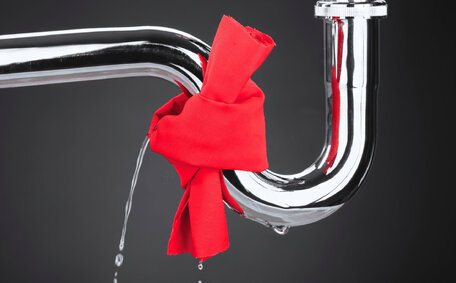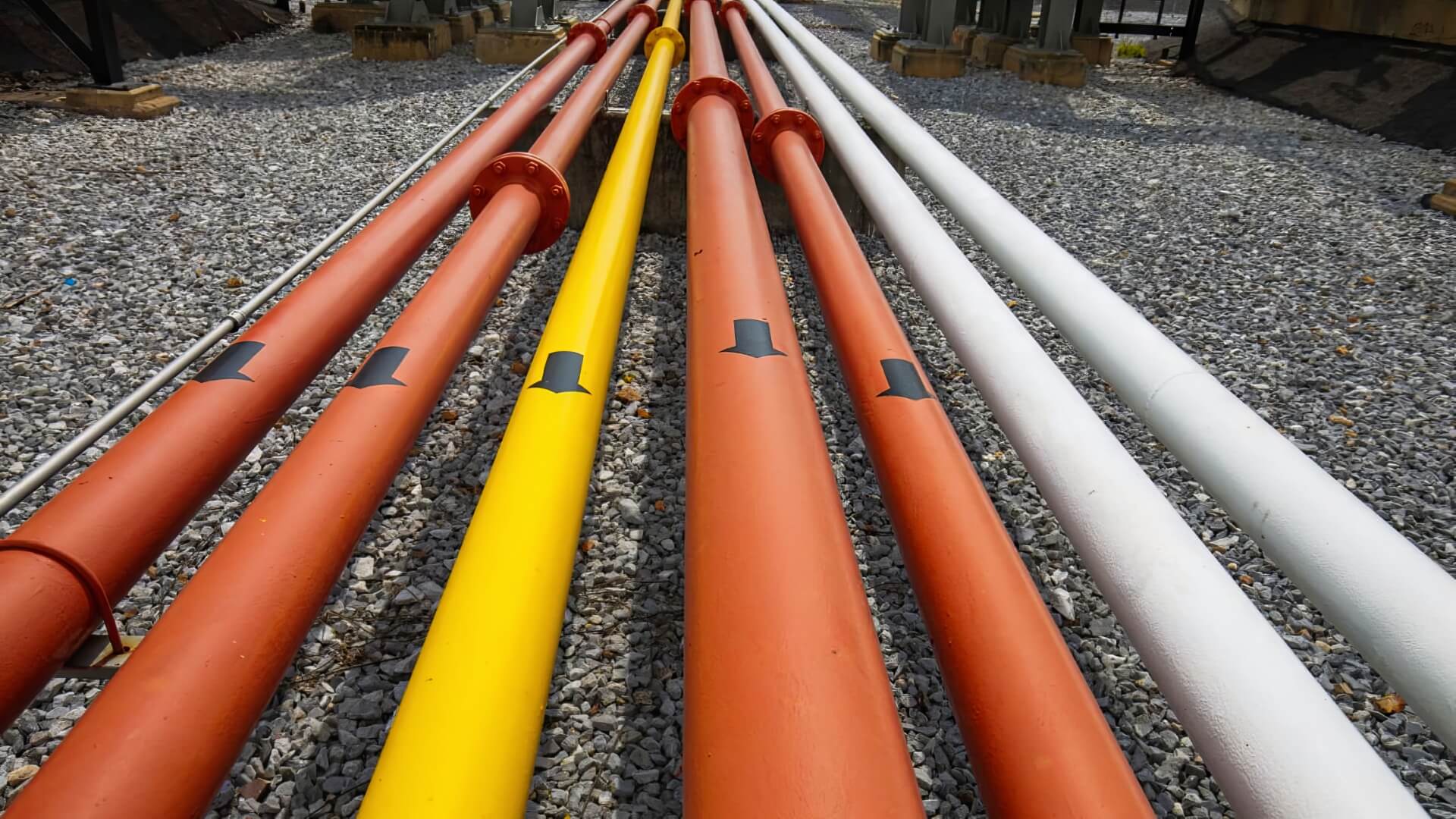Why It’s Important to Prepare Your Hot Water System for Winter
Preparing your hot water system for winter is crucial to avoid damage and guarantee efficient operation.
Insulating pipes and tanks is a critical step in winterizing your plumbing system to avert burst pipes and loss of hot water during freezing temperatures.
Servicing your hot water tank before winter involves inspecting components for wear and functionality, which includes the anode rod, drain valve, temperature pressure relief valve and heating element. Winterizing your solar hot water equipment involves reinforcing your plumbing against the cold, which ensures consistent hot water and lowers energy costs.
Follow winter maintenance tips and replace worn components to protect your hot water system from malfunctions. Inspecting the sediment buildup inside your tank ensures your equipment maintains efficiency and prolongs its functional lifespan.
Check and Adjust the Water Temperature Setting
To keep your heating costs down, setting your appliance’s thermostat to an energy-sparing 120°F (49°C) is suggested before the temperature drops. Adjust this temperature for a balance between comfort and energy savings for daily hot water use. You can save on your energy bills substantially as superfluous heat from electric hot water parts contributes to inflated expense statements—a 10°F decrement could curtail costs by 3-5% each year on water heating.
Check your hot water heater’s current temperature setting effortlessly to ensure optimal performance and energy savings. Replace the thermostat cover and insulation once finished.
We recommend carefully removing the front panel so you can view the thermostat dial, often set around 130-140°F from the factory. Turn the dial clockwise to raise the temperature, counterclockwise to reduce it. Afterwards, test the water temperature at various taps to confirm it’s adjusted to your desired 120°F.
Flush the Tank to Remove Sediment Buildup
Regularly drain your water heater to prevent sediment build-up and protect against rust and corrosion. Serving as an insulator, this sediment traps heat and makes your system work harder, thwarting adequate heating of your water rather than aiding it, thereby curtailing efficiency and capacity. Our experts suggest that periodically draining your water heaters can help remove any sediment, thus prolonging their lifespan and reducing winter energy usage.
Begin by ensuring your hot water system is safely powered down; make sure the electricity is off at the circuit breaker, or confirm the gas supply is disconnected.
Connect a garden hose to the tank’s drain valve spigot and lead it outside as a preparatory step for cold weather. Lift the drain lever or turn the spigot counterclockwise to start water flowing. When refilling is complete, restore power to your gas hot water systems for continued operation.
Inspect and Replace the Sacrificial Anode Rod
The vital sacrificial anode rod safeguards your water heater tank lining against corrosive impairment. Constructed from reactive metals such as aluminium and magnesium, the rod is designed to corrode, preventing the steel tank from deteriorating. Over time, the anode corrodes and becomes ineffective, necessitating replacement.
Householders should have the anode rod in their hot water system checked annually, particularly if they’re uncertain about assessing its condition. Locate it by removing the top insulation panel and tank fittings. Use a socket wrench to unthread the rod if possible for examination. If markedly deteriorated with under 6mm left, it’s time to replace your anode rod to ensure your local plumber can maintain protection for your system.
Setting aside less than an hour to install a new anode rod can preserve the long-term efficiency of your system. Initially, twist the new rod in by hand, then secure it with a wrench. Proactive inspection and replacement extend your water system winter’s lifespan by protecting its vulnerable interior steel shell from corrosion damage.
Add Insulation to Prevent Heat Loss
Insulating your unit, as part of winter preparation, is crucial to reduce heat loss and prevent system overtaxing. Uninsulated water pipes and tanks can waste up to 25% of the energy used to heat water through heat transfer into the surroundings. Proper insulation acts as a heat barrier against winter weather, stabilises water temperature, and extends the longevity of your home’s water heater.
To extend the life of your storage tanks, we advise using preformed pipe insulation or fibreglass batts.
Use weatherproof tape to secure the insulation and prevent moisture ingress. Properly maintained insulation improves efficiency and can lower energy costs.
Ensuring your pipes, especially exposed stretches of hot water pipes running through unheated areas like subfloors or garages, are insulated also prevents frozen pipes in frigid temperatures. Taking this preventative action protects your plumbing system against the hazard of enduring a burst pipe.
Drain and Refill Storage Tanks
Draining and refilling your water heater before winter is recommended to remove any sediment or debris that may have accumulated. Position a bucket beneath the bottom tank’s drain valve and cautiously open it to discharge any build up of water or sediment.
Begin the drainage process by turning off the cold water supply to the tank.
Once the tank is empty, turn the cold water supply back on, ensuring the valve is securely closed. Make sure your tank is thoroughly filled before you go ahead and reactivate the power or gas supply to your hot water system. This preventative action can easily be undertaken to maintain efficiency and sidestep potential winter issues.
Descale Tankless Water Heaters
Winter maintenance includes descaling your water heater to remove mineral buildup that hinders efficiency. Hard water leaves lime and calcium deposits within the heat exchanger over time. This insulating film impedes the heat transfer to the hot water your system provides for tasks like cleaning and bathing.
For efficiency and longevity, descale your water heating system annually, particularly if you notice a hot water shortage.
Start by referring to your model’s manual to ensure you correctly execute the winter descaling process. The standard descaling procedure involves: 1) Turning off the unit’s power, 2) Connecting the hoses of a pump kit to the inlet and outlet, 3) Filling the reservoir with descaling solution, 4) Circulating the solution with the pump for 45-60 minutes, and 5) Flushing the system with clean water for 10 minutes.
This process serves to break down scale deposits, preventing further accumulation and ensuring the water your heater produces flows unimpeded through the pipes. Descaling extends your tankless water heater’s lifespan by preventing mineral accumulations that could otherwise cause premature failure. Remember to descale yearly for trouble-free hot water capacity.
Schedule Annual Maintenance and Safety Checks
Annual maintenance allows your plumber to check the release valve and ensure your heater is ready for winter and operational year-round. Experts perform comprehensive safety checks on heating elements, pressure relief valves, anode rods, and other components to certify optimal hot water heater performance.
Checking the TPR valve operation with your flood stop system in place is crucial for heater winter safety, catching potential issues before pressure buildup leads to tank problems. Examining parts that commonly wear down over time allows replacement to prevent mid-winter breakdowns, ensuring there’s no hot water interruption.
Contact Wetherill Park Plumbing and our qualified team will efficiently organise your annual maintenance. Each inspection bestows peace of mind that your system will function safely and efficiently this winter.
Signs Your Hot Water System Needs Replacing
There are several telltale signs indicating your hot water heater needs replacing.
Regular interruptions in hot water supply may signify your unit’s irreversible performance decline. Visible leaks around the tank often point to unsafe internal corrosion.
Inadequate hot water capacity is another red flag needing replacement.
If you experience tepid bathing water temperatures or short availability durations, your system lacks efficiency to meet household demand. If your hot water system is over five years old or shows warning signs, contact us for a professional assessment - proactive measures can prevent costly damage from leaks or hot water loss.
Contact a Professional Plumber for Assistance
Preparing your household for winter doesn’t end with insulating windows and stocking up on firewood. Ensuring your hot water system weathers frigid conditions requires proactive maintenance to prevent breakdowns, and to give us the opportunity to ensure its optimal performance.
Our team of highly-skilled and certified plumbers at Wetherill Park Plumbing boasts years of collective know-how in the upkeep of hot water system winter maintenance in residences and enterprises throughout Wetherill Park. No matter your system’s age, fuel type or symptoms, we evaluate operational issues and deficiencies to restore reliable functionality.
Our thorough winter maintenance involves evaluating each unit, optimising settings for efficiency, descaling, and more, tailored to your requirements. We also offer 24/7 emergency repair services should freezing weather challenge your preparations, ensuring your water heater ready for reliable functionality.
Call Wetherill Park Plumbing at 1300 349 338 or email us today to schedule your winter hot water system preparation and maintenance, and safeguard your household comfort and safety.






